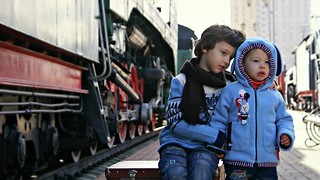Classical: CUCO Season Launch Concert
West Road Concert Hall
My feelings on the CUCO concert would essentially boil down to this – playing: excellent, a triumph. An all-Beethoven programme: not for me, thank you. My thanks, however, are sincere, as the programme choice gave me a lot of food for thought, much of which I have translated into a gastronomical analogy, for which I hope you will forgive me.

If you were to think of a concert as a delicious meal, would you prefer it to be tapas or a big steak? My sister’s feeling on the great tapas debate was this: ‘If you like it, it’s not enough – it’s just two pieces of squid, you know? It would be the equivalent of half a concerto movement. No good.’ An entire Beethoven concert, however, is the equivalent of having Roast Beef as a starter, Beef Wellington for the main, and Beef Stroganoff for pudding. Delicious and heartening, maybe, but it doesn’t accommodate the varied palate of a typical audience.
It really does come down to an issue of taste. A lack of diversity in a programme is not necessarily problematic, but a finely crafted programme is an art, and one that I felt had been neglected here. An all-Beethoven concert is certainly ambitious, and it was a challenge to which CUCO indubitably rose, and one that paid off in terms of audience size and interest. For me, however, going to a concert is more about learning rather than just experience. Among the big differences between live performance and listening to a CD is the care taken in programming, thus allowing the audience to glean greater pleasure and knowledge from something by appreciating it within a wider context.
Programme craft is a skill of blending kinship with contrast, allowing one work to sharpen the nuance of another. We were certainly being given the cream of Beethoven’s crop, but even the programme notes, informative and well-written, but by three different people, gave the sense that an over-arching intent in placing the works together was left wanting.

Having said this, the playing was, for the most part, a joy. The overture (from The Creatures of Prometheus, Op.43) showcased the violins for their crystalline clarity, led by Josie Robertson with flair and aplomb. Tom Poster’s performance of the 4th Piano Concerto was a thrilling mix of dynamism and nimbleness. His placing (especially in his interjections in the 2nd Movement) and voicing was beautiful. His wonderfully emotive eyebrows mirrored the sensitivity of his ornamentation and the tender lyricism of his phrasing. The reciprocity between Poster’s flurrying passagework and the orchestral texture was assured by his poised interaction with both conductor and orchestra.
There was, however, a problem with orchestral balance due to an uneven weight of upper and lower strings. This was soothed by a moment between the violas and piano in the concerto’s second movement. Cambridge has suffered in the past from a dirge of strong viola players, so it was a wonderful thing to behold the section playing with such a wealth of sonority. The 3rd Symphony was an exultant end to the evening, and Toby Purser’s conducting was rich in both attention and vitality. There were some slight issues in togetherness, particularly in the first movement (although the percussive chords that characterise the exposition were well placed) but this did little to detract from the explosive power of the score being brought to life by Cambridge’s flagship orchestra.
 News / Cambridge climbs to third in world Uni rankings11 October 2025
News / Cambridge climbs to third in world Uni rankings11 October 2025 Features / How to spend a Cambridge summer12 October 2025
Features / How to spend a Cambridge summer12 October 2025 Comment / Bonnie Blue is the enemy, not the face, of female liberation13 October 2025
Comment / Bonnie Blue is the enemy, not the face, of female liberation13 October 2025 News / Join Varsity this Michaelmas13 October 2025
News / Join Varsity this Michaelmas13 October 2025 News / Tompkins Table 2025: Trinity widens gap on Christ’s19 August 2025
News / Tompkins Table 2025: Trinity widens gap on Christ’s19 August 2025









